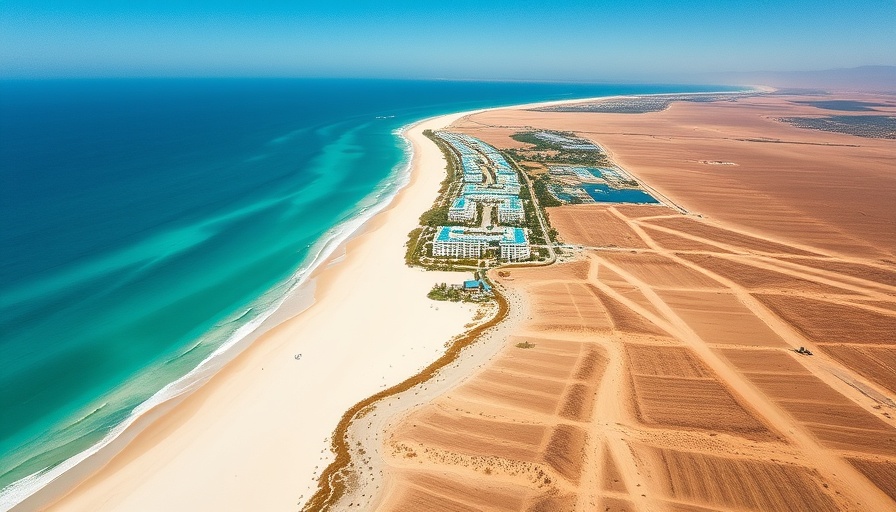
The Dual Reality of Cape Verde: Paradise or Plight?
Located in the Atlantic Ocean, about 600 kilometers off the African coast, Cape Verde stands as a symbol of beauty marked by rugged mountains and pristine beaches. Yet beneath its tropical allure lies a pressing reality that belies its picturesque exterior. The nation, which was a Portuguese colony until 1975, has become a frontline battleground against climate change, where water scarcity looms larger than ever. In a country where tourism contributes 25% to the GDP, the divide between affluent resorts and struggling locals widens, raising questions about the true cost of paradise.
In 'Cape Verde: Island paradise with a dark side,' the documentary unveils the complexities of this beautiful nation, prompting us to examine the often-hidden environmental and social issues that shape its reality.
Water Woes: A Cry for Help
Despite being surrounded by the Atlantic, many parts of Cape Verde are plagued by a crippling water crisis that exacerbates living conditions for locals. The ingenious but costly creation of desalination plants has become necessary. Yet, the exorbitant prices keep the poorest population at bay from accessing this crucial resource, leaving them to rely on aging infrastructure or the precarious market of water vendors. Farmers struggle to maintain their livestock and crops in conditions that become increasingly untenable, and approximately 40% of families in rural areas do not have reliable access to running water.
The Environmental Cost of Mass Tourism
While resorts flourish, local communities often see little of this bounty. Hotels import food and other essentials at a scale that undermines local enterprise. For instance, Cape Verde imports almost all its meat and fish, leaving fishermen and other local businesses outside the tourism loop. Moreover, mass tourism brings its challenges, threatening marine ecosystems. Areas like Shark Bay, once pristine, show signs of overexploitation where even baby sharks are enticed by tourists through feeding, disrupting natural behaviors.
Economic Dilemma and Social Disparity
The livelihoods of local women in Ribeira de Janela exemplify the dark side of the booming construction industry, where they labor to extract sand—a task that is both dangerous and illegal. Their efforts, often rewarded with meager pay, highlight the stark disparity between poverty and profit in an industry benefiting from their toil. While business thrives in superficial ways, local communities are left to grapple with dire economic circumstances that compel them to prioritize survival over sustainability.
In conclusion, Cape Verde stands as a paradox, where spectacular landscapes contrast with socio-economic despair exacerbated by climate change. It demands attention and action. As we delve deeper into the issue, it is critical for potential tourists and investors to consider the costs of their leisure and seek responsible alternatives that uphold both the environment and local communities.
 Add Row
Add Row  Add
Add 




Write A Comment